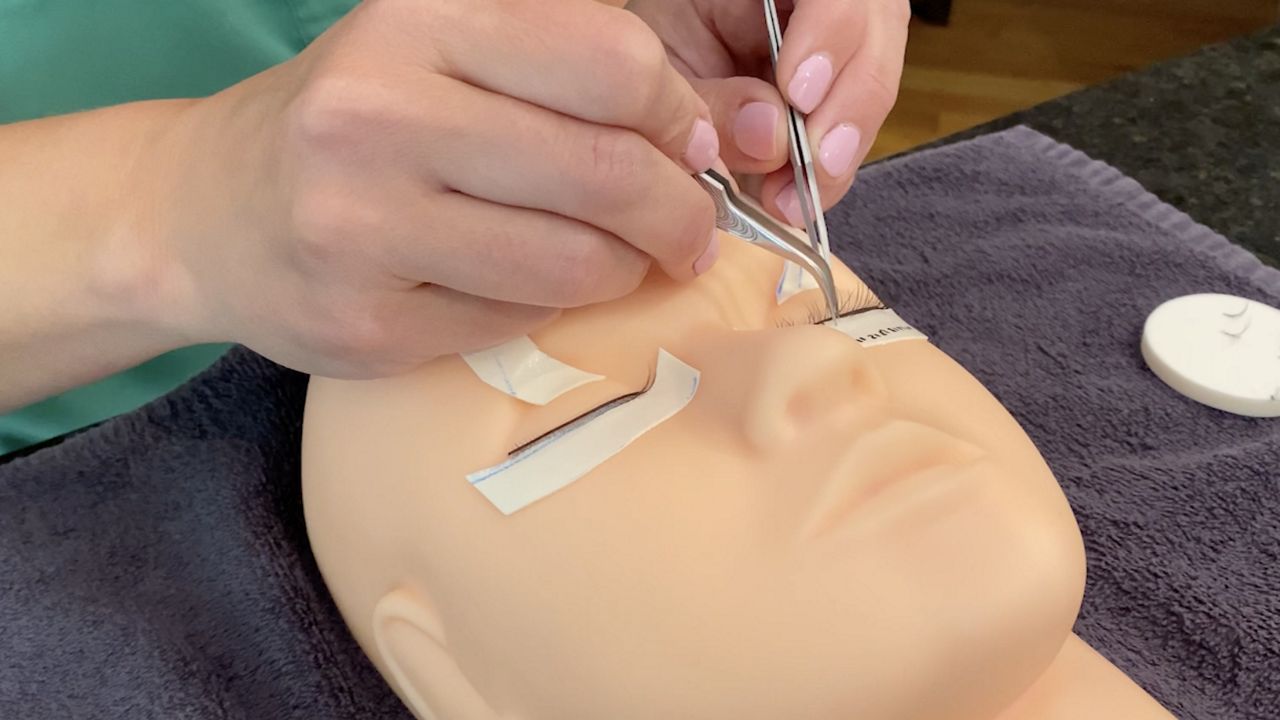Trisha D’Allaird loves to do lashes.
"Its relaxing. Typically, your client, very much like my mannequin, they don't talk during the service," said D’Allaird.
However, she's been increasingly working on mannequins, instead of human clients.
"It's slightly devastating, to be honest. I enjoy doing what I'm doing, and I've had a number of clients reach out to me that would like to obtain my services. And at this point, I'm actually scared to say 'yes,'" said D’Allaird.
D’Allaird, who is a licensed cosmetologist and aesthetician with over 20 years of experience, has stopped taking clients, fearing it will only make her legal troubles worse.
For the past year, she’s been fighting a training reimbursement agreement provision(s), also known as TRAPs.
What You Need To Know
- Proposed labor legislation is looking to protect New Yorkers from "training repayment agreement provisions" or TRAPs, which are contract terms that require workers to pay prohibitive sums if they leave a job before a certain period
- The issue was brought to the forefront by Niskayuna resident Trisha D’Allaird, who was paid $14 an hour in a lash salon and as a condition of employment, was required to sign a contract to stay in her role for a year, otherwise she would be sued for $5,000 for training reimbursement
- Trisha chose to leave her position, and is now being sued by the employer and owes thousands in legal fees
"That is the problem with these type of agreements. The employee has absolutely no bargaining power and then the job turns out to be not what they expected. They want to leave and they've got this problem," said Assembly Member Phil Steck.
Steck is pushing for new legislation to void TRAP contracts that require employees to work for a certain period of time, or they’re required to repay their employer for job training.
"I think it's different if an employer sends you out of the company for outside training that the employer pays for. That could be a different situation. But this sort of situation, where there is no special training and they're just teaching you something in-house, that is, you know, nothing out of the ordinary," said Steck.
In D’Allaird's case, she was paid $14 an hour at a lash salon. She was required to sign a contract to stay in her role for a year or she would be sued for training reimbursement. She said the only training she received was basic on-the-job training.
"At the time, you know, I think it's a $4,000 contract. So it's not, like, huge. And I'm like, after a year, it's something fun. I was going to pretty much make my own hours, so it wasn't something that totally stressed us out, although I was still kind of had that pit in my stomach that I should have listened to," said D’Allaird.
After 3 1/2 months, she decided to leave, citing an unhealthy work environment. Not long after she was hit with a $5,000 lawsuit and has been in and out of court.
The TRAP contract she signed stated if she left before six months, she’d have to pay $4,000. The lawsuit is pursuing an additional $1,000.
"It's a substantial amount of money to a family. You know, it almost makes me sick to my stomach that I signed this piece of paper and I got in the situation to begin with. It's scary to get in a situation where it's hard enough to make the decision to leave a job, but to leave a job knowing that now I could be forced into a court situation or to have to pay back money is stressful," said D’Allaird.
She said she's fighting the legal battle for herself, but pushing for the legislation to protect others in the same position, especially her former co-workers.
"They didn't have the option. It was not an option for them to leave because they were scared and didn't have the means to hire an attorney, or not to pay their car payment, or pay their rent because it wasn't again. It was not a healthy place, that somebody should be forced to have to be employed," said D’Allaird.



